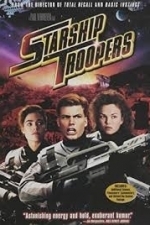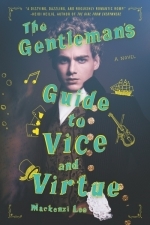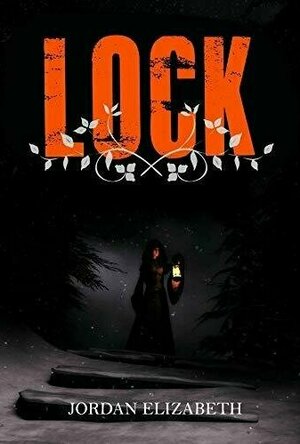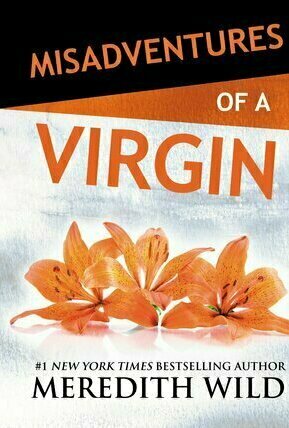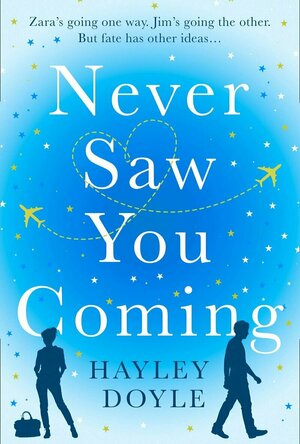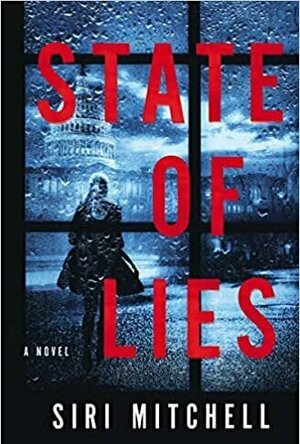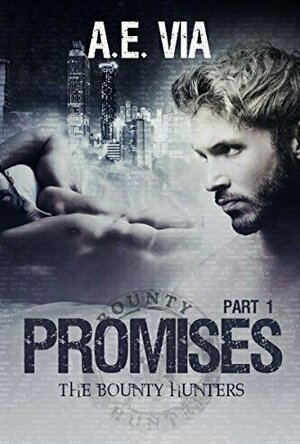Search
Search results
Cynthia Armistead (17 KP) rated Fantasy in Death (In Death, #30) in Books
Mar 1, 2018
<i>Fantasy in Death</i> is an interesting take on the death-by-gaming plot that has previously been done by a couple of fantasy and science fiction authors, most notably in Niven and Barnes' Dream Park series. I doubt that most of Robb's readers will be familiar with the other books, as they're probably coming from the romance world (crossing over from her Nora Roberts titles) instead of the science fiction genre.
What hit me the most, though, was nostalgia for the dot com boom. The portrayal of the hot start-up company with its open, cheerful offices full of tech toys and energy, well-paid employees on fire with ideas and enthusiasm happily burning the midnight oil to work on exciting projects—I remember those days! Okay, the technology wasn't as advanced as the stuff in the book, but I can relate.
I always enjoy the portrayal of Dallas and Roarke's relationship as a mature partnership. It is a bit clich&ecuted at this point that every case has some aspect that justifies bringing in Roarke as a civilian consultant, but it's part of the formula. The sex is somewhat paint by numbers by now, too, but as prolific as Robb/Roberts is, I'm wondering if she has templates for different series and she has her own <a href="http://en.wikipedia.org/wiki/Stratemeyer_Syndicate">Stratemeyer Syndicate</a>-type operation going on somewhere. (I've never read anything but the Eve Dallas books, so please take that as the joke it's meant to be!)
I was a little disappointed in the reveal, as I felt that the bad guy was too obvious. I won't say more, as I don't want to give anything away. I'll probably continue reading the series, but I'm past feeling an urgent need to grab them as soon as they come out, and this definitely isn't one of the few series that I could re-read and enjoy.
What hit me the most, though, was nostalgia for the dot com boom. The portrayal of the hot start-up company with its open, cheerful offices full of tech toys and energy, well-paid employees on fire with ideas and enthusiasm happily burning the midnight oil to work on exciting projects—I remember those days! Okay, the technology wasn't as advanced as the stuff in the book, but I can relate.
I always enjoy the portrayal of Dallas and Roarke's relationship as a mature partnership. It is a bit clich&ecuted at this point that every case has some aspect that justifies bringing in Roarke as a civilian consultant, but it's part of the formula. The sex is somewhat paint by numbers by now, too, but as prolific as Robb/Roberts is, I'm wondering if she has templates for different series and she has her own <a href="http://en.wikipedia.org/wiki/Stratemeyer_Syndicate">Stratemeyer Syndicate</a>-type operation going on somewhere. (I've never read anything but the Eve Dallas books, so please take that as the joke it's meant to be!)
I was a little disappointed in the reveal, as I felt that the bad guy was too obvious. I won't say more, as I don't want to give anything away. I'll probably continue reading the series, but I'm past feeling an urgent need to grab them as soon as they come out, and this definitely isn't one of the few series that I could re-read and enjoy.
Mike Wilder (20 KP) rated Starship Troopers (1997) in Movies
May 30, 2018
It is a great film and in the category of action Sci-Fi one of the best.
Contains spoilers, click to show
Starship Troopers is a great Science Fiction movie. It is based on a book by Robert A. Heinlein. In the future, mankind is exploring the universe and encroach upon the territory of alien bugs and war begins. The insects are only responding to a threat of their territory and are trying to fight off the invaders. The clever use of insects as the aliens makes this film stand apart from other space movies.
The cast is great. It is made up of great actors, many of who at the time were relatively unknown including Casper Van Dien, Dina Meyer, Jake Busey and Denise Richards, mixed with established stars like Clancy Brown, Neil Patrick Harris and Michael Ironside, taking minor roles. The star of the movie is hard to choose between Dina Meyer, Casper Van Dien (both of who suffered injuries while making this, Casper broke a rib and Dina suffered a concussion) and the bugs! However I am going to have to say the bugs are the stars. The use of real and CGI in this film is great. The bugs are a formidable foe and a very creative one. They are numerous and relentless. Cleverly the use of different species of bugs makes for some great surprises.
The battles are epic and bloody. This is not a film for the squeamish, every battle is like a futuristic opening scene to Saving Private Ryan. People die in horrific ways, bodies and limbs are ripped apart and even main characters don't always survive, something I always appreciate in a film as it keeps the viewer guessing.
But it is not all about war, there is a good amount of comedy and even romance in this movie. It is a great film and in the category of action Sci-Fi one of the best.
The cast is great. It is made up of great actors, many of who at the time were relatively unknown including Casper Van Dien, Dina Meyer, Jake Busey and Denise Richards, mixed with established stars like Clancy Brown, Neil Patrick Harris and Michael Ironside, taking minor roles. The star of the movie is hard to choose between Dina Meyer, Casper Van Dien (both of who suffered injuries while making this, Casper broke a rib and Dina suffered a concussion) and the bugs! However I am going to have to say the bugs are the stars. The use of real and CGI in this film is great. The bugs are a formidable foe and a very creative one. They are numerous and relentless. Cleverly the use of different species of bugs makes for some great surprises.
The battles are epic and bloody. This is not a film for the squeamish, every battle is like a futuristic opening scene to Saving Private Ryan. People die in horrific ways, bodies and limbs are ripped apart and even main characters don't always survive, something I always appreciate in a film as it keeps the viewer guessing.
But it is not all about war, there is a good amount of comedy and even romance in this movie. It is a great film and in the category of action Sci-Fi one of the best.
Goddess in the Stacks (553 KP) rated Gentleman's Guide To Vice And Virtue in Books
Dec 25, 2018
I have been eagerly awaiting this sequel to The Gentleman's Guide to Vice and Virtue, and it did not disappoint! In The Lady's Guide we continue the story of the Montague siblings, with the book opening on Felicity showing up at her brother's flat in London while she figures out how to get into medical school. I love the sibling relationship between these two, and Felicity's friendship with Monty's partner Percy. The three of them just make an amazing little group, so supportive and understanding of each other.
Felicity strongly hinted at being asexual in The Gentleman's Guide, and through the course of this book, that is cemented. Even when she comes to care for someone, sex just...isn't her thing. Romance isn't really either, making her both asexual and aromantic. It's fantastic representation for an identity we don't see very often in books. Or, perhaps, an identity we don't see explicitly mentioned in fiction. Many books don't have romantic plots and just don't investigate that aspect of their characters, but to investigate that aspect of a character and say NO, they are NOT interested in that is unique.
Similar to The Gentleman's Guide, this is an adventure story. Unexpectedly, we veered into magical realism in this book, with the existence of some fantastical creatures I wasn't expecting to see. Nothing about The Gentleman's Guide had implied that the world they inhabited was not exactly ours, but The Lady's Guide does deviate. So that was a big surprise, and I'm not sure I like it. It felt a little forced. I think the "secret" that someone was protecting could have been written as something real instead of a fantastic creature.
That minor quibble aside, I really loved this book, just like I did the first. These two are GREAT books, and the characters are outstanding.
You can read all my reviews at http://goddessinthestacks.com
Felicity strongly hinted at being asexual in The Gentleman's Guide, and through the course of this book, that is cemented. Even when she comes to care for someone, sex just...isn't her thing. Romance isn't really either, making her both asexual and aromantic. It's fantastic representation for an identity we don't see very often in books. Or, perhaps, an identity we don't see explicitly mentioned in fiction. Many books don't have romantic plots and just don't investigate that aspect of their characters, but to investigate that aspect of a character and say NO, they are NOT interested in that is unique.
Similar to The Gentleman's Guide, this is an adventure story. Unexpectedly, we veered into magical realism in this book, with the existence of some fantastical creatures I wasn't expecting to see. Nothing about The Gentleman's Guide had implied that the world they inhabited was not exactly ours, but The Lady's Guide does deviate. So that was a big surprise, and I'm not sure I like it. It felt a little forced. I think the "secret" that someone was protecting could have been written as something real instead of a fantastic creature.
That minor quibble aside, I really loved this book, just like I did the first. These two are GREAT books, and the characters are outstanding.
You can read all my reviews at http://goddessinthestacks.com
I received a digital copy from the author in exchange for an honest review.
Contemporary, young adult, romance, fantasy, steampunk, action... is there any category this book does not fit in to?! Jordan Elizabeth takes readers on a journey from New York to a fantasy world that very few knows exist in her recent novel Lock. Sarah Lockwood, the protagonist, thought the Realm was a story her late father used to tell her, however, when she discovers it is real, she jumps at the chance to visit, not realising the dangers that lie ahead.
Sarah is a self-sufficient young woman who has been living with her belly-dancing aunt since the death of her parents. Invited to stay with her Uncle William, she feels obliged to accept, however, almost regrets the decision after the cold welcome she receives. The gardener's son Archer, however, soon takes her mind off her troubles, particularly when he suggests travelling to a parallel world.
Archer comes from a family of Record Writers and it is his job to record the daily goings-on in the Realm. Sarah soon learns the Realm no longer lives up to the descriptions in the fairytales. A usurper has murdered the royal family and the inhabitants live in constant fear and poverty. Whilst this is shocking, Sarah unveils another revelation: the usurper is someone from her world, someone very close to home.
Although Lock has similarities with fantasy lands such as Narnia, it is written for a slightly older generation of readers. Sarah is 19 years old and some scenes are markedly "adult". There is also a lot of bloodshed and the occasional expletive. Nonetheless, it is a fast-paced, exciting story.
Once again, Jordan Elizabeth has written a book that is unlike the others she has written before. It is difficult to categorise the author and her novels since they are so diverse, however, one thing is for sure: Jordan Elizabeth knows how to tell a good story.
Contemporary, young adult, romance, fantasy, steampunk, action... is there any category this book does not fit in to?! Jordan Elizabeth takes readers on a journey from New York to a fantasy world that very few knows exist in her recent novel Lock. Sarah Lockwood, the protagonist, thought the Realm was a story her late father used to tell her, however, when she discovers it is real, she jumps at the chance to visit, not realising the dangers that lie ahead.
Sarah is a self-sufficient young woman who has been living with her belly-dancing aunt since the death of her parents. Invited to stay with her Uncle William, she feels obliged to accept, however, almost regrets the decision after the cold welcome she receives. The gardener's son Archer, however, soon takes her mind off her troubles, particularly when he suggests travelling to a parallel world.
Archer comes from a family of Record Writers and it is his job to record the daily goings-on in the Realm. Sarah soon learns the Realm no longer lives up to the descriptions in the fairytales. A usurper has murdered the royal family and the inhabitants live in constant fear and poverty. Whilst this is shocking, Sarah unveils another revelation: the usurper is someone from her world, someone very close to home.
Although Lock has similarities with fantasy lands such as Narnia, it is written for a slightly older generation of readers. Sarah is 19 years old and some scenes are markedly "adult". There is also a lot of bloodshed and the occasional expletive. Nonetheless, it is a fast-paced, exciting story.
Once again, Jordan Elizabeth has written a book that is unlike the others she has written before. It is difficult to categorise the author and her novels since they are so diverse, however, one thing is for sure: Jordan Elizabeth knows how to tell a good story.
J Elizabeth Klug (21 KP) rated Misadventures of a Virgin (Misadventures, #4) in Books
Dec 14, 2019
***MISADVENTURES ARE A SERIES OF STANDALONE ROMANCES THAT CAN BE READ IN ANY ORDER***
“And now I have to worry I may have given him more than my body. I may have just given up my heart.”
June Bell and Kase McCasker grew up as neighbors in Falls Edge. Kase was June’s girlhood crush with whom she shared a memorable kiss before he disappeared off to college and out of her life.
Four years ago, Kase received unexpected news that shook his world and drove him away. Now he’s back, a degree in hand, ready to face his demons. He’s determined to save the struggling farm that’s been in his family for generations.
The time and distance have done nothing to tame Kase’s desire for June, who is the daughter of the man trying to buy his family’s land. Just one look at her, even after all this time, has him ready to risk his future and his heart.
For years, June’s father has been trying to buy the McCasker land. Now, Kase agrees to the sale with one stipulation. June must spend 2 weeks with him on the property.
June agrees, finding out that Kase has been forgotten about her and is intent on finishing what they started all those years ago at the farm. Kase is upfront with his feelings and very possessive of June. As they spend time together and their feelings for each grow into something deeper, June begins to question whether she really wants the sale of the property to go through.
In learning more about Kase, June also learns some startling truths about her own mother’s death and the ongoing feud be their two families. Will this startling revelation destroy any chance of a happily ever after?
This was a great, well-written story. The characters were well developed. I found myself able to really empathize with characters emotions. Meredith Wild is rapidly becoming my favorite romance author.
“And now I have to worry I may have given him more than my body. I may have just given up my heart.”
June Bell and Kase McCasker grew up as neighbors in Falls Edge. Kase was June’s girlhood crush with whom she shared a memorable kiss before he disappeared off to college and out of her life.
Four years ago, Kase received unexpected news that shook his world and drove him away. Now he’s back, a degree in hand, ready to face his demons. He’s determined to save the struggling farm that’s been in his family for generations.
The time and distance have done nothing to tame Kase’s desire for June, who is the daughter of the man trying to buy his family’s land. Just one look at her, even after all this time, has him ready to risk his future and his heart.
For years, June’s father has been trying to buy the McCasker land. Now, Kase agrees to the sale with one stipulation. June must spend 2 weeks with him on the property.
June agrees, finding out that Kase has been forgotten about her and is intent on finishing what they started all those years ago at the farm. Kase is upfront with his feelings and very possessive of June. As they spend time together and their feelings for each grow into something deeper, June begins to question whether she really wants the sale of the property to go through.
In learning more about Kase, June also learns some startling truths about her own mother’s death and the ongoing feud be their two families. Will this startling revelation destroy any chance of a happily ever after?
This was a great, well-written story. The characters were well developed. I found myself able to really empathize with characters emotions. Meredith Wild is rapidly becoming my favorite romance author.
Leanne Crabtree (480 KP) rated Never Saw You Coming in Books
Jan 17, 2020
So Zara, who's a bit of a go getter, flies halfway across the world from Dubai to London (and then buys a third/fourth hand car so she can drive to Liverpool!) all so she can meet the guy she's been chatting with for months believing he could be "the one". But things don't turn out so well.
Then there's Jim, he's working a dead end job and can't seem to catch a break. Until he wins a car via a radio station giveaway and it changes his life.
The first half of this book was probably only 2 stars for me. It was rather slow and a bit of an info dump of flashbacks and now as we got to know our characters and figure out where their heads were at. I kept putting it down and doing other things because it just wasn't grabbing my attention that much.
The second half got a little more exciting as Jim and Zara travelled the country together, getting to know each other as they spent hours in vehicles. I was willing them on, both to get where they were going and at one point - to possibly get together. It was still a little slow going, though.
I did like Jim's cast of friends. They were resourceful and quite a good laugh.
I like how this is set in the UK. Most of the books I usually read tend to be set in the USA so this was a nice change. The way it was written was exactly how some of us talk here. It was a nice change.
I do like a good bit of chick-lit but I prefer them more along the lines of Paige Toon and Jo Watson where the characters are more obviously into each other and the romance blossoms quickly but this is still a good read if you really like the genre.
Then there's Jim, he's working a dead end job and can't seem to catch a break. Until he wins a car via a radio station giveaway and it changes his life.
The first half of this book was probably only 2 stars for me. It was rather slow and a bit of an info dump of flashbacks and now as we got to know our characters and figure out where their heads were at. I kept putting it down and doing other things because it just wasn't grabbing my attention that much.
The second half got a little more exciting as Jim and Zara travelled the country together, getting to know each other as they spent hours in vehicles. I was willing them on, both to get where they were going and at one point - to possibly get together. It was still a little slow going, though.
I did like Jim's cast of friends. They were resourceful and quite a good laugh.
I like how this is set in the UK. Most of the books I usually read tend to be set in the USA so this was a nice change. The way it was written was exactly how some of us talk here. It was a nice change.
I do like a good bit of chick-lit but I prefer them more along the lines of Paige Toon and Jo Watson where the characters are more obviously into each other and the romance blossoms quickly but this is still a good read if you really like the genre.
JT (287 KP) rated The Time Traveler's Wife (2009) in Movies
Mar 10, 2020
It’s hard to do something different with romance these days. Girl meets boy or vice versa. Boy falls in love with girl or vice versa. So every now and then it needs to do something a little different in order to give it a unique twist.
Patrick Swayze and Demi Moore had Ghost, Sandra Bullock and Keanu Reeves, The Lake House so The Time Traveller’s Wife had to go one step further. Special collections librarian Henry DeTamble (Eric Bana) has a genetic anomaly that allows him to time travel; however, he is not able to control the moment or the destiny of his voyages.
The film is based on the novel by Audrey Niffenegger and not having read the book it’s hard to say whether or not the film did it justice? That said, it’s elegantly shot and Bana and fellow on screen love interest Clare (Rachel McAdams) seem perfectly suited to their roles.
Bana is a likeable actor and has been portrayed in some pretty powerful films including Chopper, Black Hawk Down and Munich
A man who only has the love for one woman but is unable to control his ability in disappearing, he is desperate to find a cure and won’t let anything stand in his way. The time travelling plot is a little stupid. Henry is unable to control when he goes but always seems to pop up in similar places both in the past and the future, and always naked?
In the beginning he visits his wife Clare on more than one occasion as a child and as she grows older. Certainly it’s a better directed film than the Butterfly Effect in which Ashton Kutcher time travelled more often than a gas meter reader pops into your house.
The Time Traveller’s Wife is a film with nagging questions and at times head scratching conclusions but this is a love story of beauty, and for that it’s worth a watch.
Patrick Swayze and Demi Moore had Ghost, Sandra Bullock and Keanu Reeves, The Lake House so The Time Traveller’s Wife had to go one step further. Special collections librarian Henry DeTamble (Eric Bana) has a genetic anomaly that allows him to time travel; however, he is not able to control the moment or the destiny of his voyages.
The film is based on the novel by Audrey Niffenegger and not having read the book it’s hard to say whether or not the film did it justice? That said, it’s elegantly shot and Bana and fellow on screen love interest Clare (Rachel McAdams) seem perfectly suited to their roles.
Bana is a likeable actor and has been portrayed in some pretty powerful films including Chopper, Black Hawk Down and Munich
A man who only has the love for one woman but is unable to control his ability in disappearing, he is desperate to find a cure and won’t let anything stand in his way. The time travelling plot is a little stupid. Henry is unable to control when he goes but always seems to pop up in similar places both in the past and the future, and always naked?
In the beginning he visits his wife Clare on more than one occasion as a child and as she grows older. Certainly it’s a better directed film than the Butterfly Effect in which Ashton Kutcher time travelled more often than a gas meter reader pops into your house.
The Time Traveller’s Wife is a film with nagging questions and at times head scratching conclusions but this is a love story of beauty, and for that it’s worth a watch.
TO
The Oxford English Literary History: Volume V: 1645-1714: The Later Seventeenth Century
Book
The Oxford English Literary History is the new century's definitive account of a rich and diverse...
TravelersWife4Life (31 KP) rated State of Lies in Books
Feb 24, 2021
Let’s just start with the first chapter in this book. Can I say WOW?. Siri Mitchell gives us one of the best first chapters I have ever read before. It grabbed my attention as nothing else has in a long time. I picked it up to read when I only had a few minutes and boy was that a mistake. I could not stop thinking about the story and what was going to happen next.
In the first chapter, I got introduced to some of the intrigue, relationships, and mystery that Siri Mitchell weaves with great skill. It made me think in what-if scenarios (i.e. what if I was in Georgie’s or Sean's shoes?). As I picked it up to finish the story, the book continued to unfold much like that first chapter. I COULD NOT PUT IT DOWN. It was such a thrilling ride to figure out how all the clues fit together and seeing the ending. I mean Wow. This book left me giddy smiling to the point my husband asked me what was wrong. I, of course, had to explain the plot and told him he really would only understand if he read the book.
The whole book flowed at a believable rate, not rushing, but letting you get a feel for the thoughts and emotions of the characters. After reading the first chapter I was hooked. The rest of the book kept that same momentum for me, and I highly recommend reading this book. I give this book a 5 out of 5 Stars (If I could give more I would), for the great attention-grabbing first chapter, how Siri Mitchell weaved in a military/political/mystery/romance with such easy, and for the strength of the characters in not giving up in the face of overwhelming odds. Thanks for the wonderful read.
I received this book from Celebration Lit in return for my honest feedback. The thoughts and opinions expressed within are my own.
In the first chapter, I got introduced to some of the intrigue, relationships, and mystery that Siri Mitchell weaves with great skill. It made me think in what-if scenarios (i.e. what if I was in Georgie’s or Sean's shoes?). As I picked it up to finish the story, the book continued to unfold much like that first chapter. I COULD NOT PUT IT DOWN. It was such a thrilling ride to figure out how all the clues fit together and seeing the ending. I mean Wow. This book left me giddy smiling to the point my husband asked me what was wrong. I, of course, had to explain the plot and told him he really would only understand if he read the book.
The whole book flowed at a believable rate, not rushing, but letting you get a feel for the thoughts and emotions of the characters. After reading the first chapter I was hooked. The rest of the book kept that same momentum for me, and I highly recommend reading this book. I give this book a 5 out of 5 Stars (If I could give more I would), for the great attention-grabbing first chapter, how Siri Mitchell weaved in a military/political/mystery/romance with such easy, and for the strength of the characters in not giving up in the face of overwhelming odds. Thanks for the wonderful read.
I received this book from Celebration Lit in return for my honest feedback. The thoughts and opinions expressed within are my own.
Leanne Crabtree (480 KP) rated Promises: Part 1 (Bounty Hunters, #1) in Books
Jan 6, 2021
I borrowed this from the Kindle Unlimited Library.
I haven't read a gay romance in a while. This one tells the story of Duke, a bounty hunter/bail bondsman, who's in his mid 40's still pining over the guy he thought he was in love in, Judge. Then steps in his best friends son, Vaughan, a 31 year old lawyer who's had a crush on Duke for the past decade or so and has now come back to Atlanta to claim him as his own. Not all goes to plan though.
Duke is wary of dating his best friends son and Vaughan is determined to make him realise how right they are for each other. It's kinda cute, how they act around each other - like they're having their first crush.
Admittedly though, I did think that Vaughan's behaviour was a bit full on at times. Following Duke to Macy's and then following him into the dressing room? Fair enough we had a hot scene in that dressing room but it was still a little stalker-ish. I think because of that I didn't really feel their relationship. There were some cute moments throughout.
I did like how Duke saw Vaughan. He was bowled over by the sight of him and his description of him was downright awesome. It was how he described Vaughan's voice that I liked the most. Even I got a few tingles.
I liked it but it didn't completely pull me in. The relationship didn't entirely work for me. I get lust but these two seemed to fall into love really quickly and easily. I felt like I missed something.
One thing that has got me intrigued is Quick and Dr Chauncey. With how Quick spoke to the poor doctor in this one, I have no idea how he's going to straighten things out with him but after seeing that bit from the doctor's POV, I really hope they do because the poor guy deserves someone who'll stay.
I may read it at a later time.
I haven't read a gay romance in a while. This one tells the story of Duke, a bounty hunter/bail bondsman, who's in his mid 40's still pining over the guy he thought he was in love in, Judge. Then steps in his best friends son, Vaughan, a 31 year old lawyer who's had a crush on Duke for the past decade or so and has now come back to Atlanta to claim him as his own. Not all goes to plan though.
Duke is wary of dating his best friends son and Vaughan is determined to make him realise how right they are for each other. It's kinda cute, how they act around each other - like they're having their first crush.
Admittedly though, I did think that Vaughan's behaviour was a bit full on at times. Following Duke to Macy's and then following him into the dressing room? Fair enough we had a hot scene in that dressing room but it was still a little stalker-ish. I think because of that I didn't really feel their relationship. There were some cute moments throughout.
I did like how Duke saw Vaughan. He was bowled over by the sight of him and his description of him was downright awesome. It was how he described Vaughan's voice that I liked the most. Even I got a few tingles.
I liked it but it didn't completely pull me in. The relationship didn't entirely work for me. I get lust but these two seemed to fall into love really quickly and easily. I felt like I missed something.
One thing that has got me intrigued is Quick and Dr Chauncey. With how Quick spoke to the poor doctor in this one, I have no idea how he's going to straighten things out with him but after seeing that bit from the doctor's POV, I really hope they do because the poor guy deserves someone who'll stay.
I may read it at a later time.

